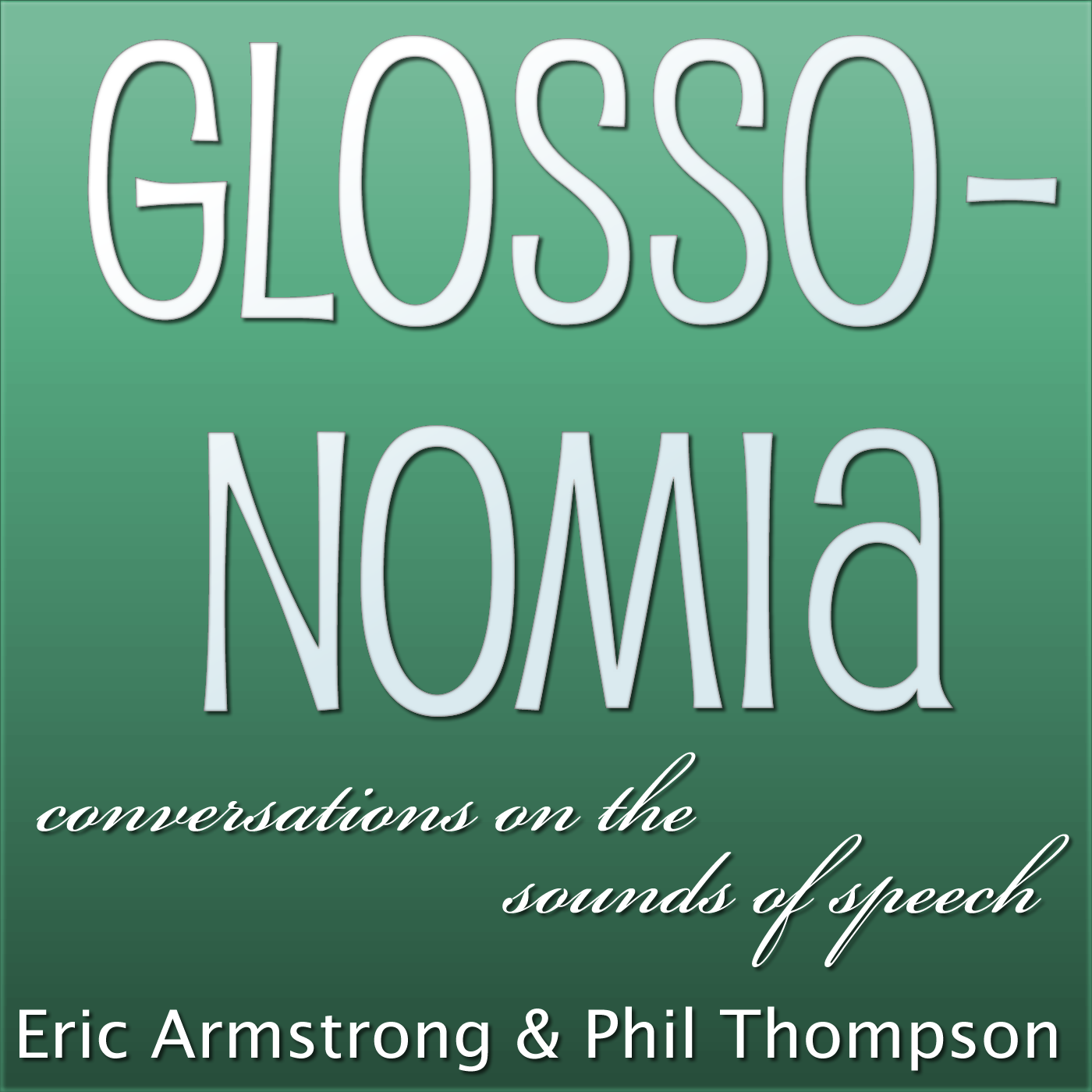Episode 5: happy

b' Eric Armstrong and Phil Thompson whistle a happy tune: this week, we\\u2019re exploring the vowel sound found at the end of words like "happy."
Eric Armstrong and Phil Thompson whistle a happy tune: this week, we\\u2019re exploring the vowel sound found at the end of words like "happy."
Show Notes:
\\t\\u2022\\tfor some this is perceived as being an /i/ sound, for others an /\\u026a/ sound, and for many (especially around where I live) a sound that is neither of those. What\'s going on here?
\\t\\u2022\\tFORMATION: Weak Close-ish Front-ish Unrounded Vowel
\\t\\u2022\\tSPELLING: Group A "y" (itchy, angry, silly etc.), "ie" (sortie, boogie, movie), "i" ( Fettucini, linguine, martini, bikini). Historical (especially in verse) price [\\u0259i]; Group B "-ee", "-ey", "-ea" Historical face, [e]
\\t\\u2022\\tHISTORY: Group A (sunny, taxi, prairie) was [\\u0259i] or [e] (coffee, honey, Chelsea) in Middle English. More recent load words are spelled \'i\'.
\\t\\u2023\\t-y endings and -ie and -ies endings
\\t\\u2023\\t-ier (happier), -iest (happiest), -ying (hurrying)
\\t\\u2023\\tprefixes before a vowel re- (react), pre- (preoccupied), de- (deactivate), semi/demi- (demigod)
\\t\\u2023\\t-iate and -ious when they have 2 syllables (appreciate, hilarious)
\\t\\u2023\\tweak form "he, she, we, me, be," (and archaic "thee"?)
\\t\\u2022\\tSome people argue that it\'s heard in weak "-ing" (gerund/present participle) endings [we disagree, generally]
\\t\\u2022\\tIn some dialects, days of the week (e.g. "Monday, Tuesday, etc.), though this is now becoming at best "conservative" speech.
\\t\\u2022\\tPiers Messum at UCL coined the term "Schwi" (for happy) and "Schwu" (for inflUence) which, I believe, he\'s no longer advocating.
\\t\\u2022\\t3 way contrast:
\\t\\u2023\\tRosa\'s, roses, Rosie\'s
\\t\\u2023\\t[\\u0279o\\u028az\\u0259z, \\u0279o\\u028az\\u026az, \\u0279o\\u028aziz]
(schwa, weak /\\u026a/, happY)
\\t\\u2022\\tNote that there are weak final /i/ vowels that aren\'t reduced, e.g. "manatee"
\\t\\u2022\\tDistribution: both Checked and Free syllables \\u2014 apart from schwa, only Free weak vowel in English (which may be why some people use [i] )
\\t\\u2022\\tReview: checked? free?
PHONETIC NOTATION: It Depends. Either represented "as it\'s said" (narrow phonetic transcription, so i & \\u026a are used with diacritic marks), or with lower case i without a length mark (a phonemic transcription, like one finds in LPD); sometimes represented with barred-i [\\u0268], though that\'s not canonical. So it doesn\'t have a cardinal number, really. (If one used barred-i, I suppose you could argue that it\'s Cardinal 17 http://en.wikipedia.org/wiki/Close_central_unrounded_vowel )
Quite a lot of variation (in accents): Onglides fairly common [\\u0259i] or [\\u0259\\u026a]; more conservative (English and US Southern) accents use /\\u026a/ , parts of Scotland use [e], Nottingham goes all the way to [\\u025b] though this appears to be changing toward [i]. When this change towards [i] occurs, linguists say that the phoneme is getting more "tense" , so it\'s a case of \\u201chappy-tensing\\u201d.
\\t\\u2022\\tHappy-Tensing http://en.wikipedia.org/wiki/Phonological_history_of_English_high_front_vowels#Happy_tensing
Queen\'s speech is undergoing happy tensing, though a study of her Xmas broadcasts (1957 \\xbb 2009) shows that her kit vowel has changed more significantly than her happy vowel, though most people don\'t seem to notice the difference in her kit sound!
'